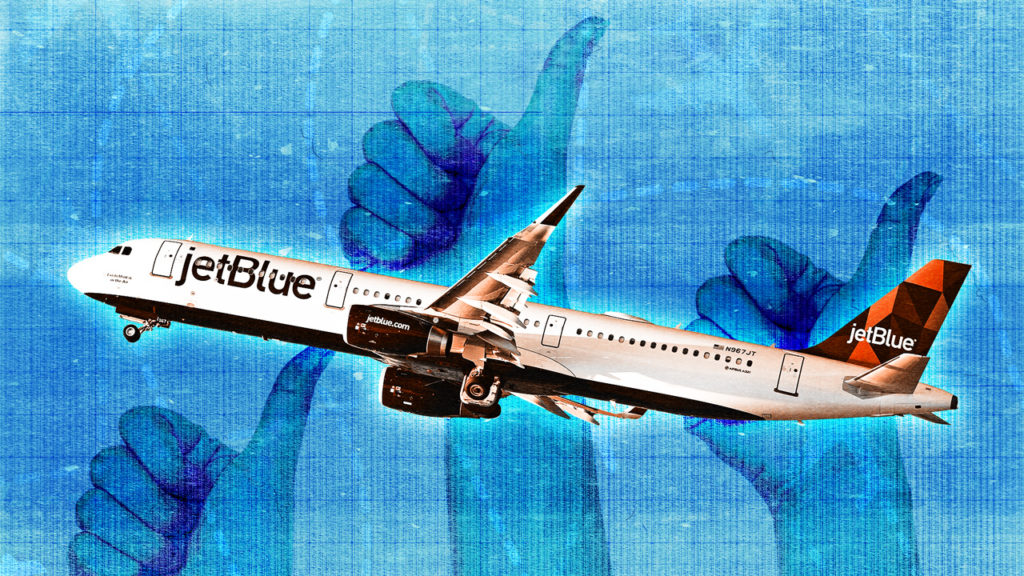JetBlue’s new campaign indirectly compares its own standards to competitors by blaming a fictional historical character of aviation. The tongue-in-cheek creative seeks to explain why air travel can be so frustrating—while the Wright Brothers invented air travel, the fictional “Just Alright Brothers” set the bar low for customer service.
“Just Alright Doesn’t Fly Here” includes three video spots—”Customer Disservice,” “The Just Alright Treatment” and “Just Alright Beginnings.” Each addresses common discomforts in modern air travel from unfriendly attendants to cramped seating and a lack of amenities onboard. JetBlue, meanwhile, touts its free Wi-Fi, unlimited snacks and legroom.
Each spot recounts a fictional history of air travel in which the Just Alright Brothers go out of their way to offer the bare minimum of service to its customers. The spots end with JetBlue employees marveling at how some still choose to travel that way before greeting their own customers with a smile.
“This campaign is designed to shine a much-needed spotlight on the complacency that’s become an all too common part of the airline experience and show those who haven’t traveled with us before that there’s a better way to fly,” Elizabeth Windram, vice president of marketing at JetBlue said in a release.
In addition to video, the campaign will include TV, digital and billboard placement. JetBlue will also position its message on social media and radio via music streaming services. The ads will be strategically placed during times when consumers are already in a “just alright” mindset, the brand said, such as browsing the web or sitting in traffic.
JetBlue’s new marketing campaign is the first since 2013 when it launched “Air on the Side of Humanity,” a fictional public service announcement about the plight of air travelers. In both campaigns, the air travel brand plays to its strengths in a comedic way.
Low-cost carriers (LCCs) like JetBlue and Southwest Airlines have created a market for budget air travel in the US and beyond. According to CAPA Center for Aviation, LCCs accounted for 32 percent of seat capacity within North America in 2018. Compared to other global markets, however, LCC in North America is growing at the slowest rate.
A 2017 study by Google and Phocuswrite found that more than 60 percent of US consumers would consider an impulse leisure trip based on a good flight or hotel deal. As consumers seek new ways to save, setting itself apart with a personal connection will be vital to give travel brands a leg up on the competition.

